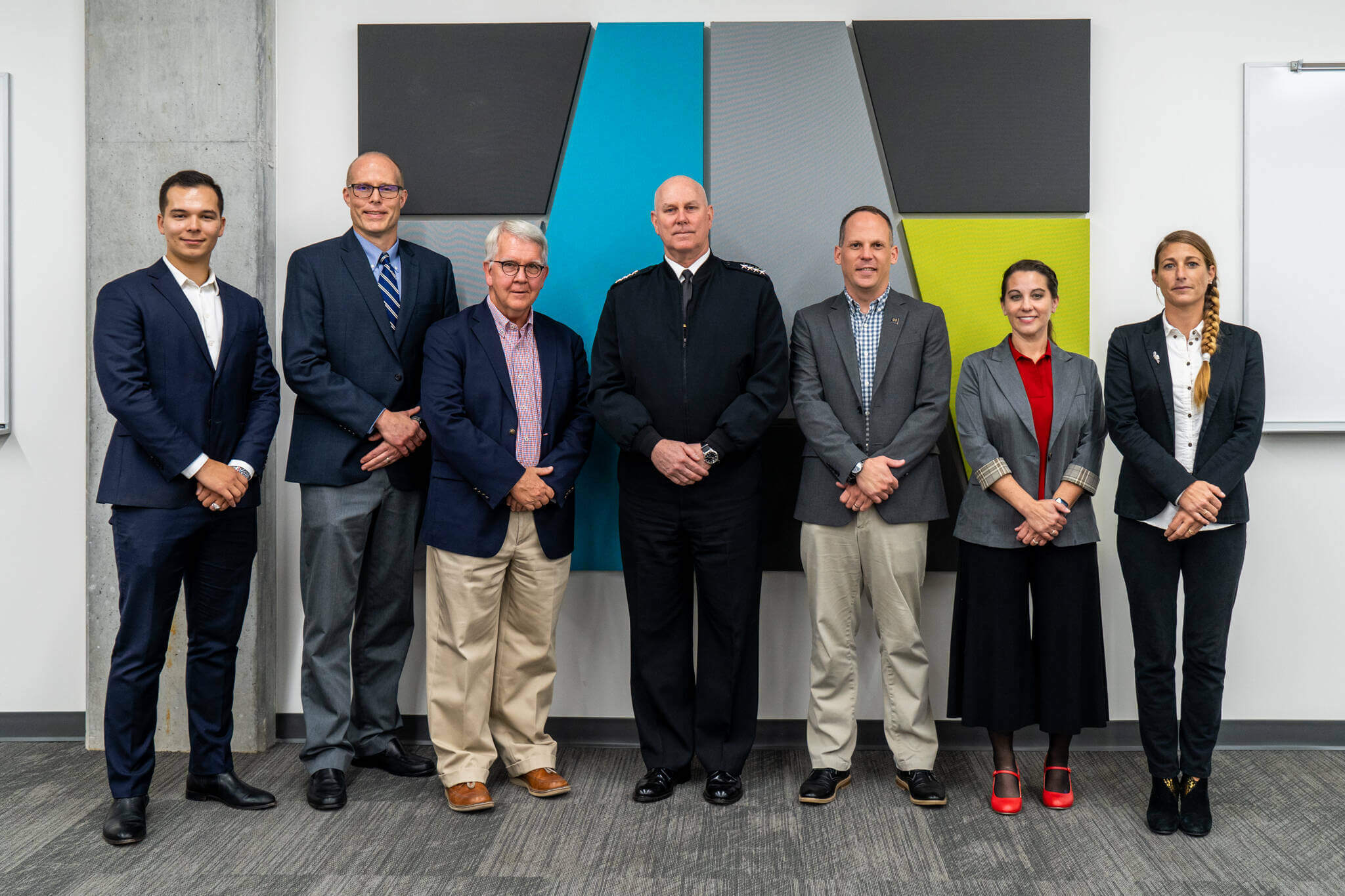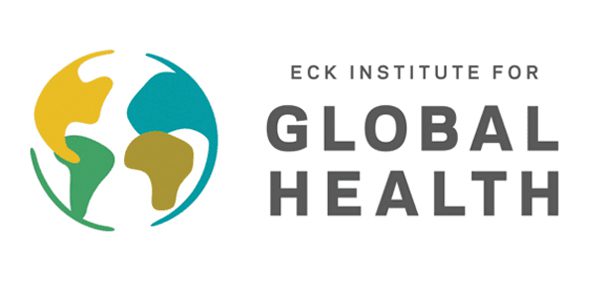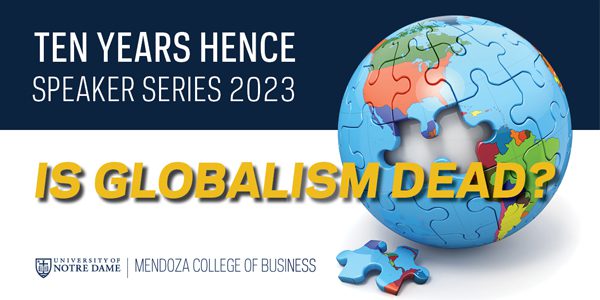Where We’re Going: Healthcare – National Viewpoint
Subscribe to the ThinkND podcast on Apple, Spotify, or Google.
Featured Speakers:
- Peter D. Banko, President & Chief Executive Officer, Centura Health
- Jane Lee, Assistant Professor, University of Washington
- Dr. Bernard Nahlen, Director, Eck Institute for Global Health, University of Notre Dame
For the second week of the “Where We’re Going: Healthcare” series, moderator Dr. Bernard Nahlen, Director, Eck Institute for Global Health brought in Notre Dame alumni who are experts in healthcare, from an accessibility and business standpoint. The focus this week was to highlight the national viewpoint on how Covid-19 has affected healthcare, and how this will change the future of healthcare indefinitely.
Nahlen was joined by Jane Lee, who graduated from Notre Dame in 2009. While she was at Notre Dame, she became passionate about making sure that marginalized populations have access to the healthcare they need. Currently, she is an assistant professor at University of Washington, School of Social Work and pursues research which aims to improve healthcare outcomes for immigrant communities. Peter Banko was another guest speaker. Banko is the president and chief executive officer of Centura Health. In his work, he is passionate about integrating business and faith in order to redefine health for those he serves.
The conversation began with a discussion regarding the different facets of healthcare that this pandemic has exposed. Lee shared that, “The Covid-19 pandemic has really shed a light on all of the inequities that really characterize our society and our nation.” First and foremost, immigrants and minority communities are much more vulnerable than the rest of the population. While these communities have lower incomes on average, they are also disproportionately represented in essential services, causing them to be at higher risk for contracting the virus. Banko agreed that the virus has shed light on many weaknesses of American healthcare. With regards to the healthcare workers who work for his company, many were worried about health risks, supply chain issues, shortages on medications, and revenue, especially during the early months of the pandemic. In addition, the pandemic caused a 40% reduction in emergency room visits. Strikingly, he said “People would rather die at home of a heart attack than go to the hospital.” Despite these challenges, he believes that Centura Health has weathered the storm well and will come out of it a better company than before.
This was followed by a conversation about access to healthcare. Banko stated, “Medicare for all, for me, is medicare for none.” He explained this using the analogy of a Disney World fast pass. If everyone has a fast pass, then no one, really, has a fast pass. He believes that while Obama Care works at its core, some people still fall through the cracks; it is an imperfect system but not a hopeless one. With regards to healthcare access for immigrants, Lee discussed some of the challenges these communities face. The barriers they face are both societal and individual. These barriers range from transportation to political rhetoric and policies. Such policies can cause these populations to fear discrimination and even deportation.
Next, Banko explained how he has aimed to support clinician burnout throughout these difficult times. He admitted, candidly, that it has been an immense challenge. Some of the steps that Centura Health has taken to combat clinician burnout are: an emphasis on communication, a commitment to no furloughs or layoffs, the addition of grocery deliveries and childcare assistance for employees, and an added encouragement for people to take time off as they see fit.
Lee began to discuss where healthcare is headed in the future by stating that she hopes that minority communities and immigrant communities will be able to be active participants in the conversations regarding the changes they need to see in healthcare. There is hope that drastic changes will be made so that healthcare is a more equitable service for all. Banko anticipates incremental change, which includes more pandemic response, a re-entering World Health Organization, and expanding access to Obama Care.
- The pandemic has shed a massive light on healthcare inequities in America. (9:05)
- “The Covid-19 pandemic has really shed a light on all of the inequities that really characterize our society and our nation.” (Jane Lee, 9:15)
- “This virus has a great way of spotlighting your weaknesses-both organizationally, systematically, and personally from a leadership perspective.” (Peter Banko, 11:45)
- Fewer people are utilizing emergency rooms due to fear of the pandemic, which has affected healthcare revenues. (13:30)
- “Our country has the largest immigrant population in the world, and yet our healthcare systems have not been designed with these communities in mind.” (Jane Lee, 18:11)
- Immigrants and marginalized communities fear discrimination in healthcare which deters them from seeking help. (19:30)
- Banko believes that Medicare expansion will be emphasized post-pandemic. (31:32)
- Improving the health of America requires recognition of privilege and anti-racism. (38:20)
- “I think to ensure that we improve the health of our country we really have to address systemic racism and push for anti-racist strategies to facilitate change.” (Jane Lee, 38:32)
- “It is 2020, in the United States, and we have people in our communities that don’t have running water—so, for me, it has created a call for action.” (Peter Banko, 40:55)
Related Content
Notre Dame researchers present latest findings and innovations to nation’s second highest-ranking military officer
In October 2022, Admiral Christopher W. Grady ’84, the Vice Chairman of the Joint Chiefs of Staff, joined faculty members at the University of Notre Dame for an update on the...
Read ArticleND Research Explores: The Eck Institute for Global Health
The University of Notre Dame’s Eck Institute for Global Health (EIGH), under the direction of Bernard Nahlen, serves as a university-wide enterprise that recognizes health as a...
watch videoCOVID-19 and the Future of Health Care
This year marks the 21st anniversary of the Mendoza College of Business signature lecture series, Ten Years Hence. We invite you to join with us to see and hear a variety of...
View Event


